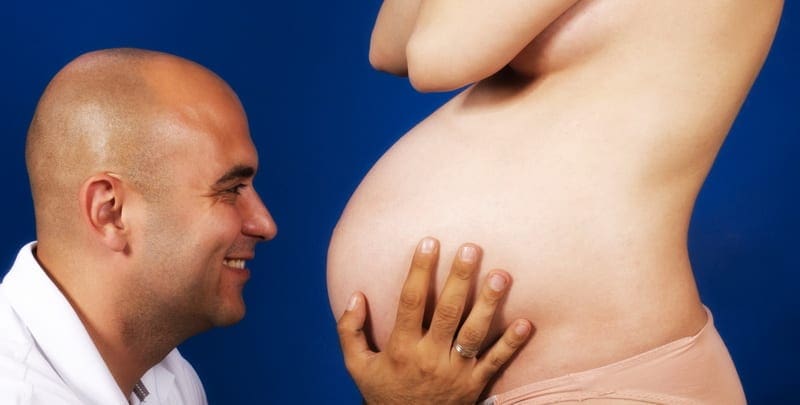The Impact of Cancer Treatment on Fertility
Cancer treatment can have a significant impact on fertility and reproductive health. Both men and women may experience challenges in conceiving or maintaining a pregnancy after undergoing cancer treatment. It is important to understand the potential effects of cancer treatment on fertility and explore options for preserving fertility before starting treatment.
Chemotherapy and radiation therapy, two common cancer treatments, can have detrimental effects on fertility. Chemotherapy drugs can damage the reproductive organs and disrupt the production of sperm or eggs. Similarly, radiation therapy can affect the reproductive organs and lead to infertility. The specific impact of these treatments on fertility may vary depending on the type and dosage of the treatment, as well as the individual’s age and overall health.
Fortunately, there are strategies to mitigate the effects of cancer treatment on fertility. Before starting treatment, individuals can consider fertility preservation options. For women, this may involve freezing eggs or embryos for future use. Men can also freeze sperm to preserve their fertility. These techniques allow individuals to have the possibility of starting a family after completing cancer treatment.
In addition to fertility preservation, it is important to discuss the potential impact of cancer treatment on reproductive health with healthcare professionals. They can provide guidance on managing any fertility-related concerns and offer support throughout the treatment process. By being proactive and informed, individuals can make decisions that prioritize their long-term fertility and reproductive health.
Chemotherapy and Fertility
Chemotherapy is a common treatment option for cancer patients, but it can have significant effects on fertility in both men and women. Understanding these effects and exploring strategies to mitigate them is crucial for individuals who wish to preserve their fertility before undergoing chemotherapy.
In women, chemotherapy drugs can potentially damage the eggs and follicles in the ovaries, leading to a decrease in fertility or even premature menopause. This can result in difficulties conceiving naturally or carrying a pregnancy to term. In men, chemotherapy can affect sperm production and quality, leading to reduced fertility or even temporary or permanent infertility.
To mitigate the effects of chemotherapy on fertility, there are several options available. One common approach is fertility preservation, which involves freezing eggs or embryos before starting chemotherapy. This allows individuals to use these preserved eggs or embryos for future fertility treatments, such as in vitro fertilization (IVF), after completing chemotherapy.
Another option is ovarian tissue cryopreservation, which involves removing and freezing a portion of the ovary before chemotherapy. This frozen tissue can later be transplanted back into the body, potentially restoring fertility. However, it is important to note that these techniques may not guarantee successful pregnancy and should be discussed with a fertility specialist.
In addition to fertility preservation, it is also important to consider the timing of chemotherapy treatment. Some chemotherapy drugs have a higher risk of affecting fertility than others, so discussing the potential risks and benefits with a healthcare provider is crucial. In some cases, it may be possible to delay chemotherapy temporarily to allow for fertility preservation procedures.
Overall, understanding how chemotherapy can affect fertility in both men and women is essential for individuals undergoing cancer treatment. By exploring strategies such as fertility preservation and discussing timing options with healthcare providers, individuals can make informed decisions about their reproductive health and future family planning.
Radiation Therapy and Fertility
Radiation therapy is a common treatment for cancer that uses high-energy radiation to target and destroy cancer cells. While it can be highly effective in fighting cancer, it can also have a significant impact on fertility and reproductive health. The specific areas of the body that may be affected by radiation therapy depend on the type and location of the cancer being treated.
For women, radiation therapy to the pelvic area can damage the ovaries, leading to a decrease in egg production and potential infertility. In some cases, radiation therapy may also cause damage to the uterus or cervix, affecting the ability to carry a pregnancy to term. To preserve fertility before undergoing radiation therapy, women may consider options such as egg or embryo freezing, which involves harvesting and freezing eggs or embryos for future use.
For men, radiation therapy to the testicles can damage sperm production and potentially lead to infertility. In some cases, radiation therapy may also affect the prostate gland, which plays a role in fertility. To preserve fertility, men may consider options such as sperm banking, which involves collecting and freezing sperm for future use.
In addition to fertility preservation methods, there are also strategies that can help mitigate the effects of radiation therapy on fertility. These may include shielding the reproductive organs during treatment, using lower doses of radiation when possible, or using alternative treatment methods that are less likely to affect fertility. It is important for individuals undergoing radiation therapy to discuss their fertility concerns with their healthcare team and explore all available options.
In conclusion, radiation therapy can have a significant impact on fertility and reproductive health. Understanding the specific areas of the body that may be affected and exploring potential fertility preservation methods can help individuals make informed decisions about their cancer treatment and future family planning. By working closely with their healthcare team, individuals can navigate the challenges of cancer treatment while also prioritizing their fertility goals.
Surgical Interventions and Fertility
Surgical interventions play a crucial role in the treatment of cancer. However, these procedures can have a significant impact on fertility and reproductive health. It is important for individuals undergoing surgery for cancer to understand the implications and explore options for fertility preservation before and after the procedure.
When it comes to surgical interventions for cancer treatment, the effects on fertility can vary depending on the type and location of the surgery. In some cases, surgery may directly affect the reproductive organs, such as the removal of the uterus or ovaries in women or the removal of the testicles in men. These procedures can result in infertility or a reduced ability to conceive naturally.
Fortunately, there are options available to preserve fertility before undergoing surgery. In women, techniques such as egg freezing or embryo freezing can be considered. These methods involve retrieving eggs from the ovaries and freezing them for future use. In men, sperm freezing is a common option, where sperm samples are collected and stored for later use in assisted reproductive techniques.
After surgery, it is important to discuss fertility preservation options with your healthcare team. Depending on the type of surgery and the individual’s unique circumstances, fertility preservation techniques such as in vitro fertilization (IVF) or the use of donor eggs or sperm may be recommended. These options can offer hope for individuals who wish to have children in the future but may have been affected by surgical interventions.
In addition to exploring fertility preservation options, it is important to discuss the potential impact of surgery on fertility with your healthcare team. They can provide guidance and support, and help you make informed decisions about your reproductive health. Open communication and collaboration between the patient and healthcare team are essential in addressing the implications of surgical interventions on fertility.
In conclusion, surgical interventions for cancer treatment can have significant implications for fertility. It is important to be proactive and explore fertility preservation options before undergoing surgery, as well as discuss the potential impact and available options with your healthcare team. By taking these steps, individuals can empower themselves and make informed decisions about their reproductive health.
Frequently Asked Questions
- Can cancer treatment affect fertility?
Yes, certain cancer treatments such as chemotherapy, radiation therapy, and surgical interventions can have an impact on fertility in both men and women.
- How does chemotherapy affect fertility?
Chemotherapy drugs can damage reproductive cells, leading to temporary or permanent infertility. The specific impact depends on the type and dosage of chemotherapy drugs used.
- Can fertility be preserved before undergoing cancer treatment?
Yes, there are options available to preserve fertility before starting cancer treatment. These include sperm banking for men, egg or embryo freezing for women, and ovarian tissue freezing.
- What areas of the body may be affected by radiation therapy?
Radiation therapy can potentially affect the reproductive organs, such as the ovaries in women and the testicles in men. The extent of the impact depends on the radiation dosage and the specific area being treated.
- Are there methods to protect fertility during radiation therapy?
Yes, techniques such as ovarian shielding and testicular shielding can be used to minimize the exposure of reproductive organs to radiation during therapy. However, these methods may not guarantee complete protection.
- How do surgical interventions for cancer treatment impact fertility?
Surgical procedures, especially those involving the reproductive organs, can potentially affect fertility. This may include the removal of ovaries or testicles, which can lead to a loss of fertility. However, not all surgeries have a significant impact on fertility.
- What are the options for fertility preservation before and after surgery?
Before surgery, options such as egg or sperm freezing can be considered. After surgery, assisted reproductive techniques like in vitro fertilization (IVF) or the use of donor eggs or sperm may be explored to achieve pregnancy.
- Is fertility preservation always successful?
While fertility preservation methods have advanced significantly, success rates can vary depending on individual factors and the chosen method. It is important to discuss the potential success rates and limitations with a fertility specialist.
- Should I discuss fertility preservation options with my healthcare team?
Yes, it is essential to have open discussions with your healthcare team about fertility preservation options before starting cancer treatment. They can provide guidance and refer you to fertility specialists who can help you make informed decisions.
- Can fertility be restored after cancer treatment?
Restoring fertility after cancer treatment can be challenging, but it is not impossible. Depending on individual circumstances, fertility treatments such as IVF or the use of donor eggs or sperm may be explored to achieve pregnancy.











